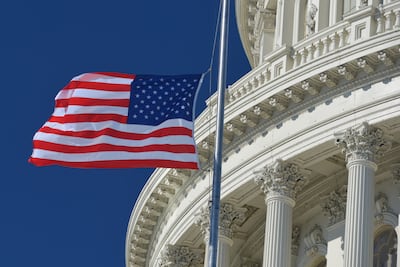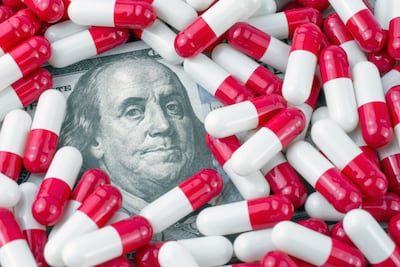Legislation
The Trump administration has launched TrumpRx, a website the White House says could help save Americans billions in pharmaceutical spending, although it does not itself sell or dispense drugs.
The US Labor Department also added a proposed rule requiring PBMs to disclose additional compensation information to certain employer-plan sponsors.
If the EU’s controversial Artificial Intelligence Act applies restrictive rules to pharmaceutical research and development activities, the UK could benefit from offering a more favorable regulatory environment, top lawyer Stephen Reese explains.
Patients severely burned in a Swiss bar fire have been treated with a novel, life-saving antimicrobial containing sulbactam and durlobactam. But this drug has never been filed for approval in the EU, something that is “disappointing” according to the EMA’s Marco Cavaleri.
Using artificial intelligence in drug discovery and development could have huge benefits for companies, but a key challenge will be addressing how data is used to train AI tools and managing intellectual property issues, says Clifford Chance’s Stephen Reese.
The European Parliament has adopted its position on the Critical Medicines Act, prompting industry representatives to highlight ongoing areas of concern in the proposal.
New compliance measures for big pharma under the amended EU sustainability reporting and due diligence directives could lead to new contractual requirements for smaller partners.
The European Medicines Agency has not “always fared favorably” compared to other countries such as the US when it comes to drug approval timelines, but the reform of the EU pharma legislation is a key opportunity to “think out of the box,” says the agency’s head of therapeutics areas.
BMS's Lenkowsky discussed the impact of the company's MFN deal in an interview at the J.P. Morgan Healthcare conference.
Brazil’s new drug pricing rules, which come into force in April, are intended to better recognize incremental innovation and give more predictability to the pricing of biosimilars.
A new pharma package, fresh laws for biotech and new rules for tackling medicines shortages are among the raft of legal changes that industry must grapple with in the year ahead. Lawyers explain the key changes for pharma companies.
A synthetic, animal-free test using recombinant Factor C to test for bacterial endotoxins in drug development will be integrated into the European Pharmacopoeia, marking another step towards replacing animal models.
The UK’s latest economic budget, which will enter into force this April, offers “nothing” to support the government’s claim that it is making it easier for startups to launch, scale and remain in the UK, a biotech founder and lawyer argues.
The FDA wants PDUFA to have the same flexible spending trigger threshold as the BsUFA program, but industry prefers a tighter mandate.
India’s moves on digital data protection don’t pose a hurdle to patient recruitment, but on the wish list of global innovators is permission for first-in-human (FIH) trials and removal of certain commercialization requirements, says Parexel’s India head
The French national assembly has adopted a version of the 2026 social security finance bill that includes price cuts and penalties for companies that adopt tactics to delay generic entry.
The version of the Critical Medicines Act adopted by a key committee of the European Parliament could mean uncertainty for the manufacturers of orphan drugs, warns industry.
The standard baseline of regulatory data protection will remain at eight years under the new pharma package, while market protection will drop to a year as standard. However, innovative products that fulfil certain criteria could get up to 11 years of market exclusivity.
Changes to the procurement of critical medicines and their active ingredients are among the amendments the Council of the EU has made to the draft Critical Medicines Act.
A Senate hearing on the medical product supply chain suggests there is bipartisan support for ‘buy American’ policies for federal Rx purchases, and for country-of-origin labeling to help those policies expand to the private sector.




















